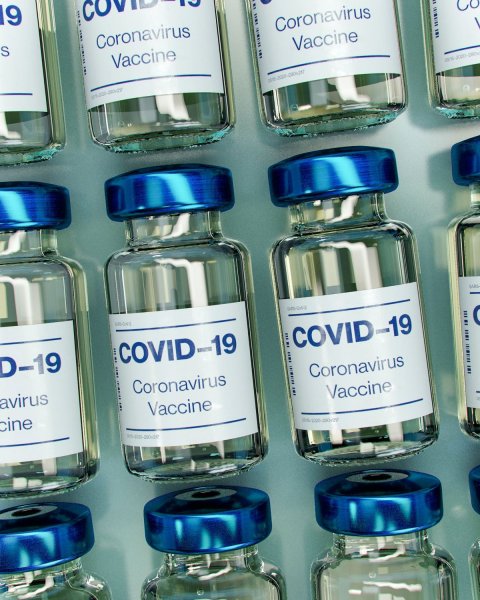News • AstraZeneca
Thrombotic complications: Researchers report breakthrough in SARS-CoV2 vaccination
Vaccines are important for managing the COVID-19 pandemic caused by SARS-CoV-2. However, following widespread vaccination using a recombinant adenoviral vector encoding the spike protein antigen of SARS-CoV-2 (AZD1222, AstraZeneca), reports have emerged of some vaccine recipients developing unusual thrombotic events and thrombocytopenia. Researchers investigated whether such patients could have a prothrombotic disorder caused by platelet-activating antibodies directed against a platelet protein, as a similar mechanism is known to be caused by heparin and sometimes other environmental triggers.

Under the lead of the group of Dr Andreas Greinacher, transfusion medicine Universitätsmedizin Greifswald, Germany, researchers from the University Hospital Vienna, Austria; McMaster University Canada; the Paul Ehrlich Institut, Langen, Germany and the Greifswald Universitaetsmedizin, Greifswald Germany investigated the clinical and laboratory features of patients in Germany and Austria who developed cerebral vein thrombosis and thrombocytopenia following AZD1222 vaccination. They Transfusion Medicine team also developed a new specific confirmatory assay which allows detection of these antibodies.
Patients tested strongly positive for anti-platelet antibodies by immunoassay; and strongly positive in the newly developed functional test (platelet activation assay) in the presence of a newly identified cofactor (still under embargo). The test allows clear differentiation between the new syndrome and the long know adverse drug effect heparin induced thrombocytopenia, (HIT). Platelet activation by the AZD1222 vaccination associated antibodies was inhibited by intravenous immunoglobulin, a widely available, approved medication.
The Greifswald team highlights the unique collaboration of international scientists, physicians, the Paul Ehrlich Institute (German regulatory agency), treating physicians who referred blood samples and patients who agreed to donate their blood for research
Within a short period of time, from receiving the first patient sample Tuesday, March 16, 2021 at noon until Friday, March 19 the team:
- Identified the mechanism of SARS CoV2 vaccination induced severe thrombotic complications,
- identified a widely available screening test, which is widely available (already confirmed by researchers in the UK),
- develop a confirmatory test which seems to be highly sensitive and specific (cautionary note: the number of samples investigated is still limited),
- and to identify a treatment which has the potential to rapidly deescalate the catastrophic prothrombotic mechanism. As the researcher team has shown before that IVIG is very effective in treatment of catastrophic HIT, and as HIT has a very close clinical and laboratory resemblance characteristics to these vaccine associated complications, it is highly likely that IVIG will also be an important therapeutic options (in addition to anticoagulant treatment) for these patients. IVIG is approved and available in most hospitals.
The researchers propose to call this syndrome VIPIT Virus/Vaccine Induced Prothrombotic Immune Thrombocytopenia.
Source: Universität Greifswald
22.03.2021







